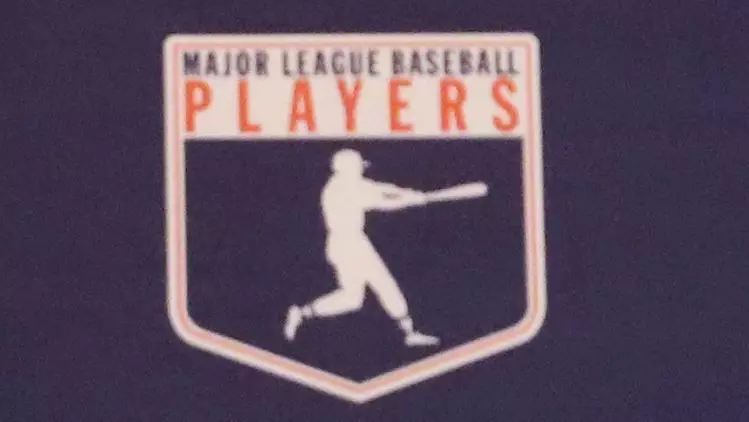A deep-seated investigation has emerged that could shake the very foundation of Major League Baseball (MLB) and the National Football League Players Associations (NFLPA). Reports have surfaced, indicating that the FBI has approached prominent players within these unions regarding their financial dealings with a multibillion-dollar group-licensing organization known as OneTeam Partners. Launched in 2019 with the backing of both the MLBPA and the NFLPA, this partnership was envisioned as a vehicle to generate substantial revenue through media deals and the commercialization of athletes’ names, images, and likenesses. However, what was initially seen as a lucrative venture is now drawing unwanted scrutiny, bringing with it questions about transparency and ethical practices within player unions.
The central focus of the investigation revolves around the financial entanglements of OneTeam Partners. According to confidential sources, several players involved in union leadership have been contacted by law enforcement, raising the alarming possibility of financial impropriety permeating these revered institutions. While the players interviewed are reportedly not targets, the sheer implication of an FBI investigation casts a long shadow over the credibility of both unions, and by extension, the athletes they represent.
OneTeam Partners: A Double-Edged Sword
Despite being valued at an astounding $1.9 billion in 2022, following RedBird Capital’s divestiture of its stake, OneTeam Partners’ trajectory has not been without turbulence. Not only has the company expanded its portfolio to include unions from various sports, such as women’s basketball and college athletics, but it has also faced allegations that threaten to undermine its accomplishments. Previous complaints have surfaced, claiming “nepotism, corruption, mismanagement” within the MLBPA. Moreover, an audit initiated by the NFLPA raised concerns regarding potential equity options awarded to the executives of the unions involved, including those of the MLBPA.
OneTeam has publicly declared its commitment to cooperating with the ongoing investigations, emphasizing its innocence in the alleged wrongdoing. However, this stance has not quelled the growing concerns, as the financial benefits accrued through OneTeam have prompted questions regarding the ethical dynamics within the unions themselves. It’s become glaringly clear that while the partnership has generated financial windfalls, it has concurrently opened the door to potential abuses of power, particularly with allegations against the MLBPA executive director, Tony Clark, for self-enrichment through equity shares.
The Financial Landscape: Peaks Amidst Ethical Quandaries
Since Tony Clark ascended to the role of executive director, union finances have markedly improved, showcasing the stark duality of success and scrutiny. The MLBPA has pocketed nearly $160 million from OneTeam between 2020 and 2024. However, despite the financial gains portrayed in annual LM-2 reports, critical details regarding the distribution of these funds among players remain murky. This opacity raises ethical concerns about how these profits are being utilized and who benefits most from these hefty sums.
Moreover, the accusations against Clark regarding insufficient disclosures about the partnership, alongside the allegations of self-dealing, paint a concerning picture of leadership integrity. Even as the MLBPA bolstered its financial holdings to a historic $353 million, it begs the question: at what cost? The apparent richness of the union’s coffers contrasts sharply with the ethical obligations of its leadership, leaving many to wonder how deeply the roots of corruption might run.
Navigating a Minefield of Allegations
The football side of the investigation also bears its own burdens. The NFLPA has enjoyed substantial financial inflow from OneTeam, reportedly receiving $422.8 million over the past five years, compoundingly raising questions about accountability within its ranks. The recent audit of OneTeam by the NFLPA reportedly concluded that its governance practices were in line with standards, yet skepticism remains about the thoroughness of such an evaluation. As DeMaurice Smith, a co-founder of OneTeam, steps away from his prominent role, the question looms: can the NFL Players Association adequately assure its members and the public of its integrity moving forward?
Critics are beginning to question whether these unions, which are supposed to prioritize player welfare and fair representation, are indeed functioning as entities striving for transparency and ethical standards. As players within both leagues grapple with their roles amid such allegations, the need for rigorous oversight becomes increasingly pressing.
While OneTeam and its associated unions basked in financial success, the unfolding investigation serves as a grim reminder of the precarious balancing act between money and morality in professional sports. As the scrutiny intensifies, athletes, fans, and stakeholders alike must engage in a conversation about accountability, governance, and the ethical implications of financial partnerships in sports. The world will be watching closely as this story unfolds, revealing the true cost of ambition within the realm of professional athletics.


Leave a Reply